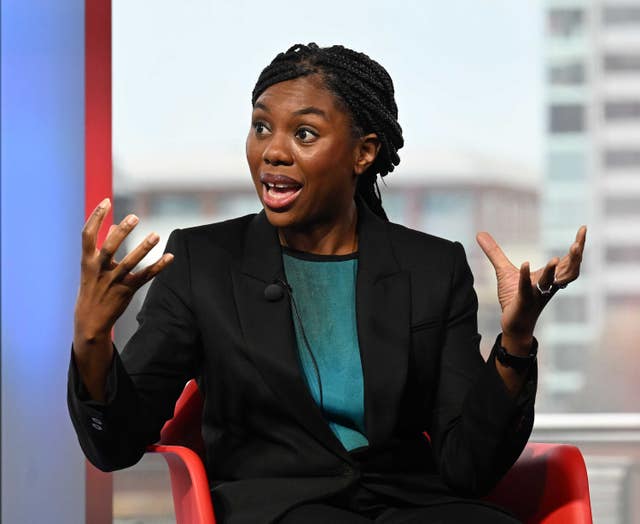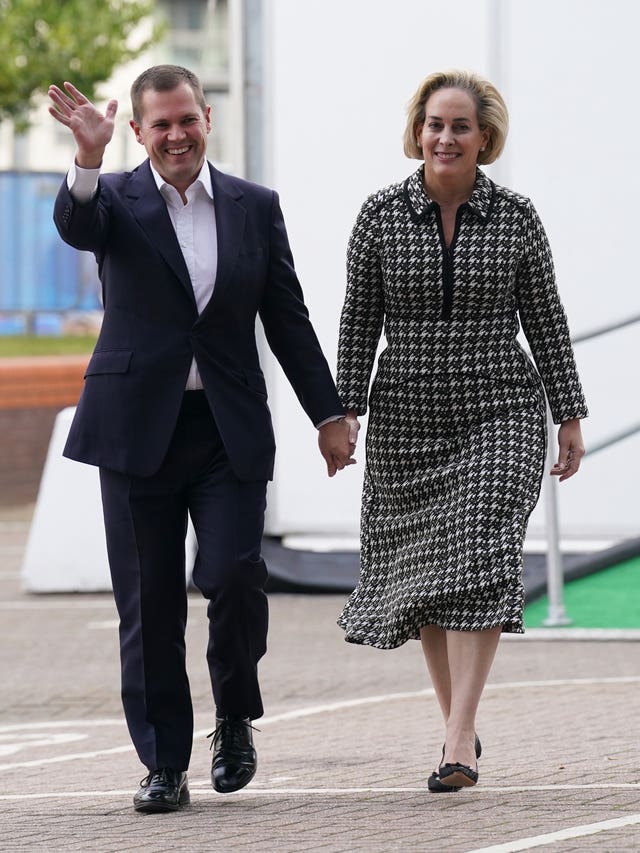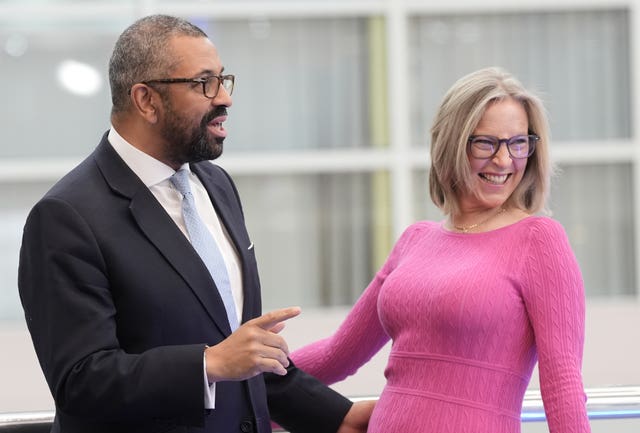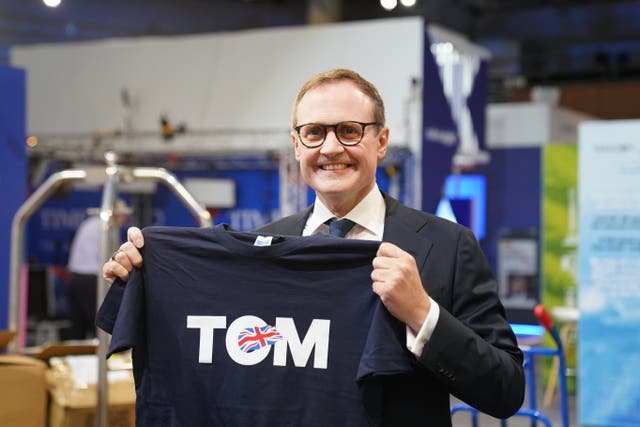Conservative leadership candidates lay out immigration plans ahead of conference
Immigration has been one of the much-discussed issues.

Conservative leadership candidates have laid out their plans on immigration ahead of the party conference where they will be vying to replace Rishi Sunak as leader.
The first conference since their election defeat in July begins in Birmingham on Sunday – and Robert Jenrick, Tom Tugendhat, Kemi Badenoch and James Cleverly will be drumming up support in the contest.
Immigration has been one of the much-discussed issues in the contest, which is due to declare a winner at the start of November.
Ms Badenoch suggested that cultures where women have fewer rights than men are among those she deems “less valid” than Britain.

In the same piece she called for an “integration strategy”.
Asked about her remarks on the BBC’s Sunday With Laura Kuenssberg: she said that it is “not about labelling cultures”.
Ms Badenoch went on: “I think that cultures where women are told that they should not work, I would knock on doors… and you would see somebody at the door who says I can’t speak to you I will get my husband.
“I don’t think that is as equally valid as our culture.”

Mr Jenrick, who resigned as immigration minister in Rishi Sunak’s government in December over the Rwanda plan, said that the reason the policy had not worked was “ because it was not strong enough”.
“I resigned from the cabinet at the turn of the year because unfortunately I was not able to persuade the then prime minister and the cabinet that we needed to strengthen the policy,” he added.
The leadership election was triggered by Rishi Sunak announcing his intention to stand down after the Conservatives secured 121 seats in July, down hundreds on their 2019 election results.
Mr Cleverly would not point to one of his party’s former prime ministers as being responsible for their summer election defeat, but said that the public “didn’t like the constant infighting” or the “bickering” among their numbers.

“We didn’t do that just once or twice. We did it over and over again.
“The British people told us that they wanted us to think about them, not to think about ourselves.”
Mr Tugendhat pointed to his record in the military and other public service to “demonstrate” his “character”.
When asked on the same Sky News programme if the Tories needed another “posh boy leader from a great public school”, he said “I think the Conservative Party needs a leader who can lead, and you can judge me on the decisions my parents made 35 years ago or you can judge me on the decisions I have made for the last 35 years.
“I think that decisions I have made for the last 35 years demonstrate the character that you are looking at.
“I have chosen consistently to serve our country. I have put myself on the frontline in Iraq and Afghanistan.”
New data from YouGov released on Sunday suggested that nearly seven in 10 Britons hold an unfavourable view of the Conservative Party.

This compares to 4% who have a “very favourable” view and 18% who have a “somewhat favourable”.
In addition, 56% of people said that they thought the Conservatives are “only interested in themselves” while 50% described them as “dishonest”.
Mr Sunak called the conference “an important moment for our party”, when they need to “learn” lessons. It is their first in opposition since 2009.
In an op-ed for The House magazine, the former prime minister said: “Of course, we need to learn the lessons of our defeat: we did not get everything right in government – no government ever does – and we do now need to reflect on that.
“But we should not forget what we have achieved since 2010.”
Interim party chairman Richard Fuller is expected to apologise to the membership for the general election loss when he addresses delegates on Sunday afternoon.
He will tell members that the parliamentary party “needs to learn and has to change”.
Mr Fuller is expected to say: is expected to say: “I am profoundly sorry to you, the members of the Conservative Party.
“To our activists.
“To our current and former councillors, police and crime commissioners and mayors who found their strong local records of service were dominated by negative national headlines.
“To Conservative voters and to the country at large for the consequence: a reckless, ideological socialist government with a huge majority based on a paltry share of the electorate.
“I am deeply sorry.”





